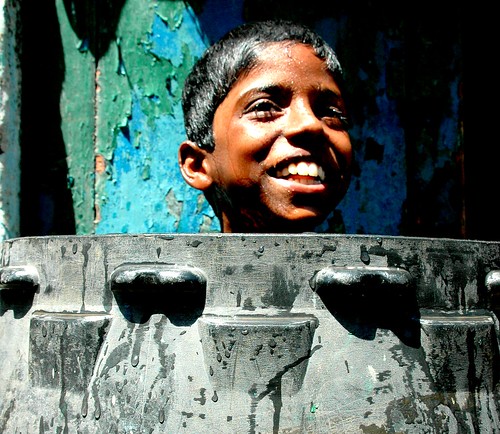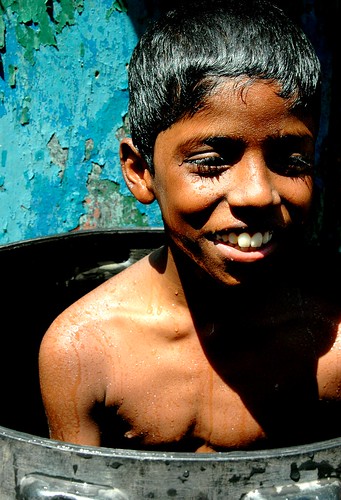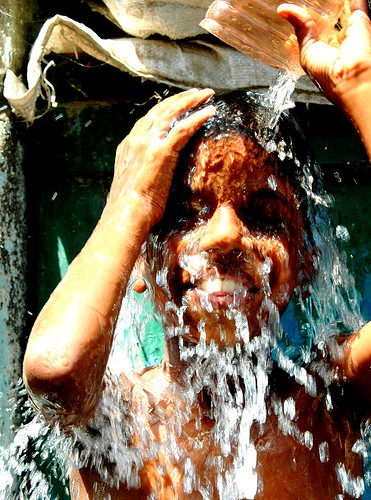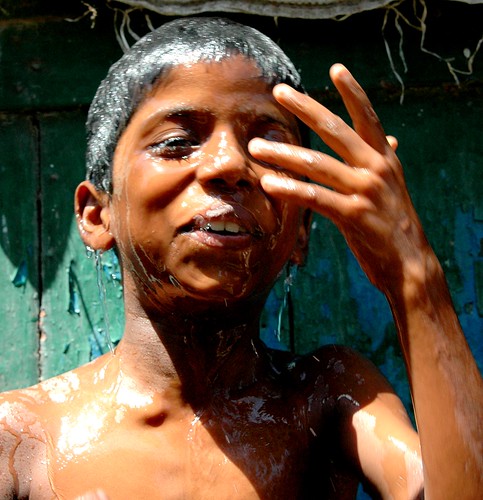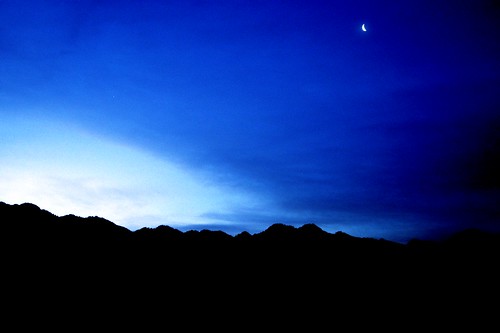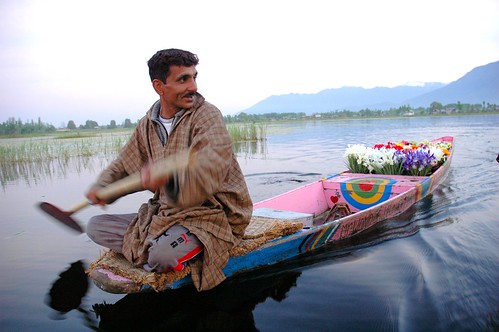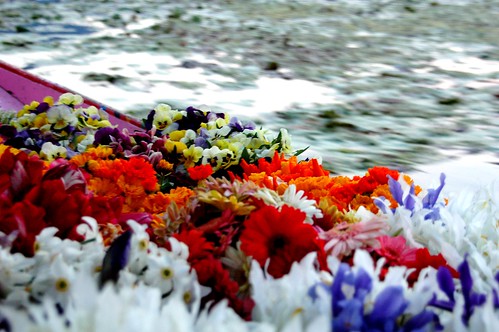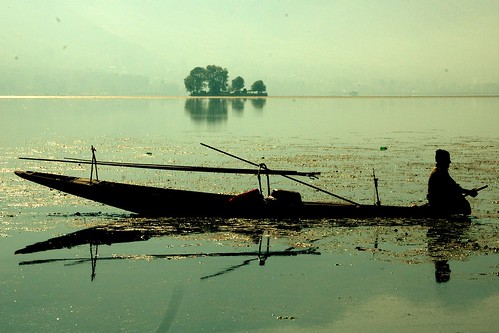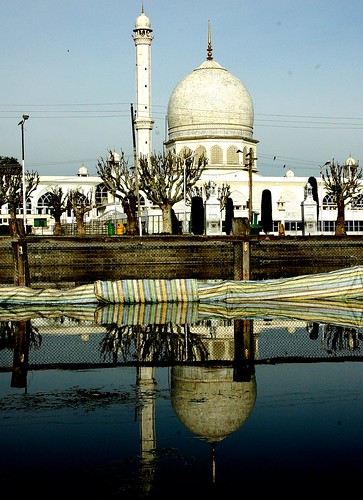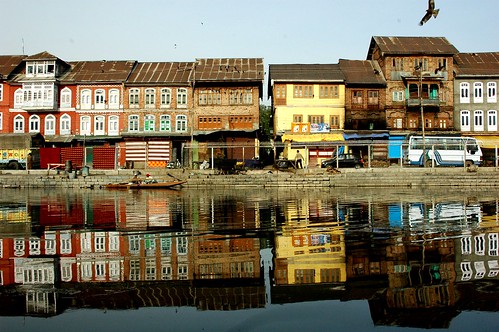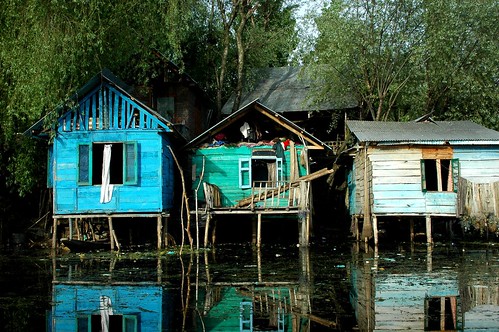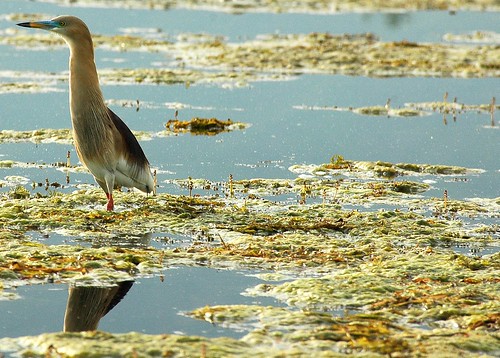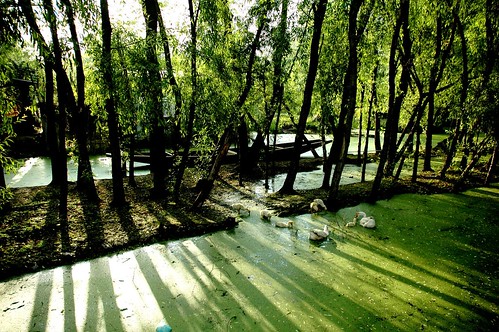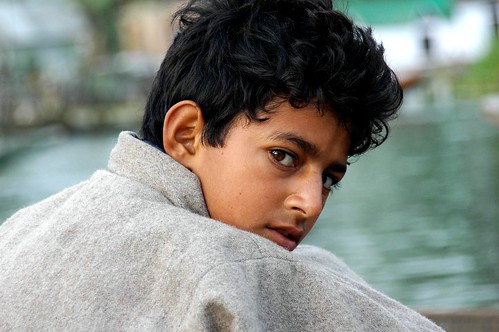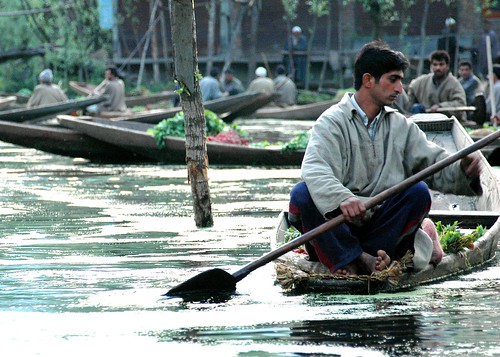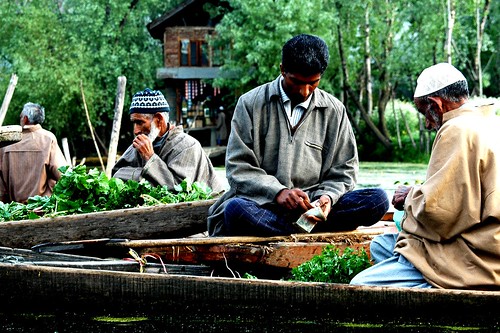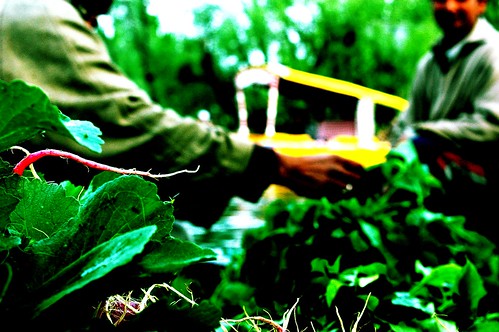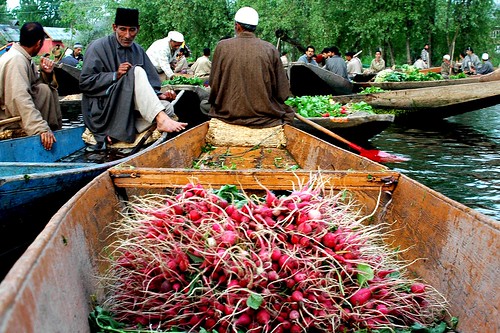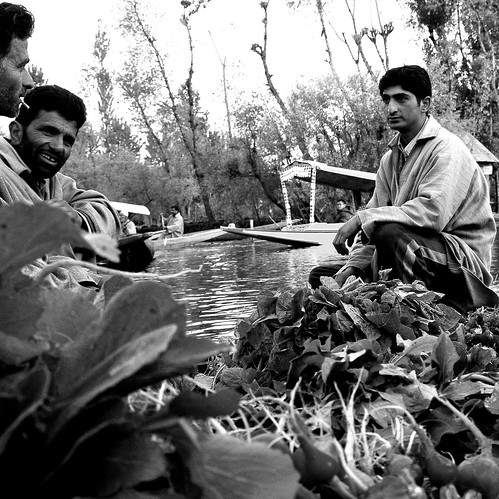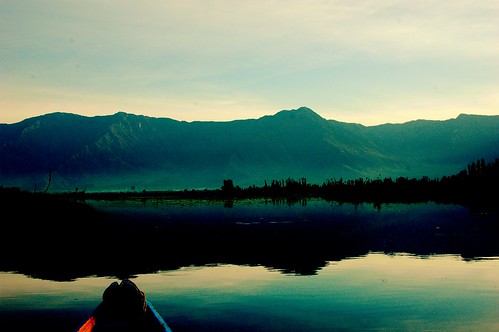
Azure tipped mountains reflect a thousands hues of blue into the waters of the tranquil shadowy weed-ridden Dal lake. Morning prayers from the white domed single minaretted mosque, the Hazaratbal, resound through the till then silent confines of the valley. Darker tones give way to gentle blues as our boatman Lasa, surges the shikara forward with his spade shaped oar. Dawn awakens to the music of a thousand birds and ducks swim by, as a fisherman waits patiently to catch his breakfast. A brown cheeked kingfisher swoops into the air and then maneuvers itself skimming the water for gnats as dapchicks make morning dives into the water in pairs disappearing and reappearing with tiny tadpoles in their beaks.

[A curious Bulbull]
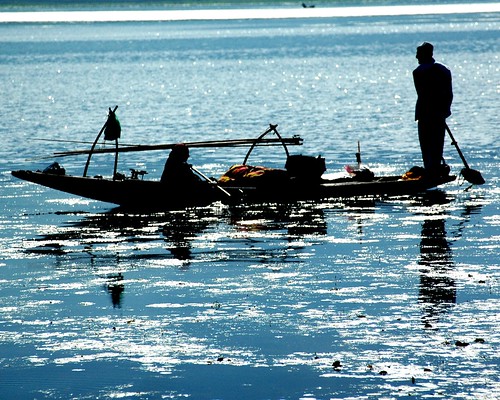
This is what our driver. Shakeel must have meant when he told us,
"Kal dekhna, aap Jannat mai uthen gai" [Tomorrow morning you will wake up in paradise] . This was not the Srinagar we read about in the papers or see on the news channels. This is not the Srinagar of curfews and bandhs, of grenade attacks, of bomb blasts, of shoot outs, of encounters, of security checkpoints and bunkers, of armed men in uniform, of abandoned buildings, of sniffer dogs, of military convoys, of lurking fear and of 6000 missing young men. Sadly natural beauty is indifferent to the human suffering.
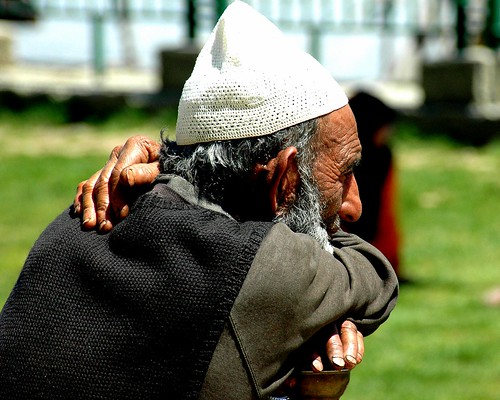
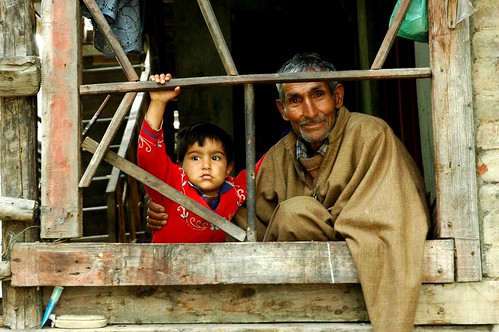
[Generations at a threshold]
Frozen in a fifteen year conflict between separatists, armed foreign insurgents and a stretched security force, Srinagar looks like a place in the middle of a war zone, In many way it is a city under siege, a city that has almost lost its spirit. The victim, the ordinary Kashmiri, is left alienated by his own country and an army that was sent there for his protection. As a guide in the Kashmiri mountain resort of Gulmarg told me,
"Hum kya boll sakte hai Bhaisaab, hamare awaz cheen lai gai hai. Humare mathe par ek calank chap gaya hai" (We have can't say anything brother, our voice has been taken away from us. Our foreheads have been branded)
Kashmir in the days I spent there struck me as a paradoxical paradise - a place of outstanding natural beauty and a beautiful people and a place of visible sadness. 1989 is the year that is entrenched in the minds of the older Kashmiris. It is the year that everything changed for them and so they bring up comparisons of the situation before militancy and after militancy.
The situation in the valley is getting better. For one, the tourists are returning and the once empty decaying houseboats in the Nageen and Dal lakes are once again brimming and mostly “sold out”. Tourist buses are back ferrying,at this time of the year, mostly Gujarati tourists on to their next destination. There are good signs when the smiling man at the reservation desk tells you that it is the first time in nearly two decades that all the hotels in Gulmarg are fully booked for the month of May and June. I am also told that there has been a steady reduction in the army and paramilitary forces in the last few years. There is sporadic violence by militants but is mostly targeted at the army. The Kashmiris nonchalantly are quick to remind me that this is a global phenomenon with similar incidents in Mumbai, Delhi, London, Lisbon, etc.
Dig deeper into the historic consciousness of Kashmir and you will find a rich and intelligent heritage often forgotten by its troubled present.
The Kashmiri poet Azad wrote against religious fanaticism :
“Pray, announce to all the Kashmiri the
secrets thou hast confided to Azad,
After casting away childish frivolities of Kufir and Deen
The light from the candle is for all;
Hindus and Musalman
In this vast expanse of Oneness
Who is my kin, and who a stranger to me?
A Musalman is to me as good as a Hindu;
My deen is fraternity, my dharma is oneness.
My light is meant for one and all…..”
The Chinar Tree is the symbol Kashmir and its known to take a thousand years to reach its full size; my only hope is that it takes less time to heal the wounds of Kashmir.
In the words of Shair-e-Kashmir, the poet Mehjoor:
“Arise, O Gardener !
Let there be glory in the garden. Once again !
Let the rose bloom again
Let Bulbuls sing of their love again !
The garden in ruins,
The dew in tears,
The roses in tattered leaf-
Let roses and Bulbuls be kindled anew with life !”
